Assistant Professor Dmitry Lyumkis’ team uses and optimizes an advanced imaging technique called cryo-electron microscopy (cryo-EM) to visualize large protein complexes within cells and to uncover how these structures work. In the fall, Lyumkis and Philip Baldwin co-authored a study that provides a foundation for quantitatively determining how differences in viewing angles affect the resulting 3D structures of proteins. Then, in January, Lyumkis, Salk co-first author Dario Passos and colleagues reported on how a powerful class of HIV drugs binds to a key piece of HIV machinery. By resolving this complex in 3D for the first time while different drugs were attached, the researchers discovered structural reasons for why these therapies are so potent.
Advances in imaging technique and new insight into how HIV drugs work at atomic level
Featured Stories
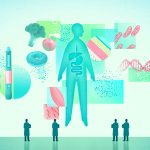 What’s next for GLPs? Salk scientists are shaping the future of weight-loss medicineSalk researchers are breaking metabolism down piece by piece. Their recent discoveries could help reduce the side effects of GLP-1 drugs and inspire the next generation of weight management therapies.
What’s next for GLPs? Salk scientists are shaping the future of weight-loss medicineSalk researchers are breaking metabolism down piece by piece. Their recent discoveries could help reduce the side effects of GLP-1 drugs and inspire the next generation of weight management therapies.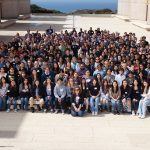 Science comes alive for high schoolers and educators at SalkSalk’s annual High School Science Day had the highest participation in the event’s history, as 205 excited students were welcomed onto campus. Teachers also had a day of their own at the Ellen Potter Teacher Symposium, learning side-by-side with world-renowned scientists.
Science comes alive for high schoolers and educators at SalkSalk’s annual High School Science Day had the highest participation in the event’s history, as 205 excited students were welcomed onto campus. Teachers also had a day of their own at the Ellen Potter Teacher Symposium, learning side-by-side with world-renowned scientists.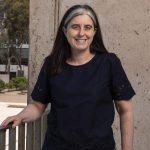 Nicola Allen: Neuroscience has a new starAs her recent promotion and awards reflect, Allen has led a paradigm shift in neuroscience by turning the field's spotlight onto astrocytes. These specialized brain cells could be the missing piece to understanding Alzheimer's and other neurological diseases.
Nicola Allen: Neuroscience has a new starAs her recent promotion and awards reflect, Allen has led a paradigm shift in neuroscience by turning the field's spotlight onto astrocytes. These specialized brain cells could be the missing piece to understanding Alzheimer's and other neurological diseases.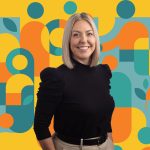 Michelle Chamberlain: Bringing together communities old and newChamberlain, whose lifelong commitment to others has shaped her journey to Salk, now serves as Salk’s vice president of External Relations, leading fundraising, communications, community engagement, foundation relations, and stewardship efforts.
Michelle Chamberlain: Bringing together communities old and newChamberlain, whose lifelong commitment to others has shaped her journey to Salk, now serves as Salk’s vice president of External Relations, leading fundraising, communications, community engagement, foundation relations, and stewardship efforts.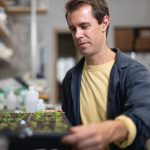 Joseph Swift: Saving potatoes, one road trip at a timeSwift, a plant biologist and startup co-founder, had an adventurous upbringing in Australia filled with natural beauty. Today, he uses plant genomics to tackle urgent questions in sustainability and agriculture.
Joseph Swift: Saving potatoes, one road trip at a timeSwift, a plant biologist and startup co-founder, had an adventurous upbringing in Australia filled with natural beauty. Today, he uses plant genomics to tackle urgent questions in sustainability and agriculture.





















































